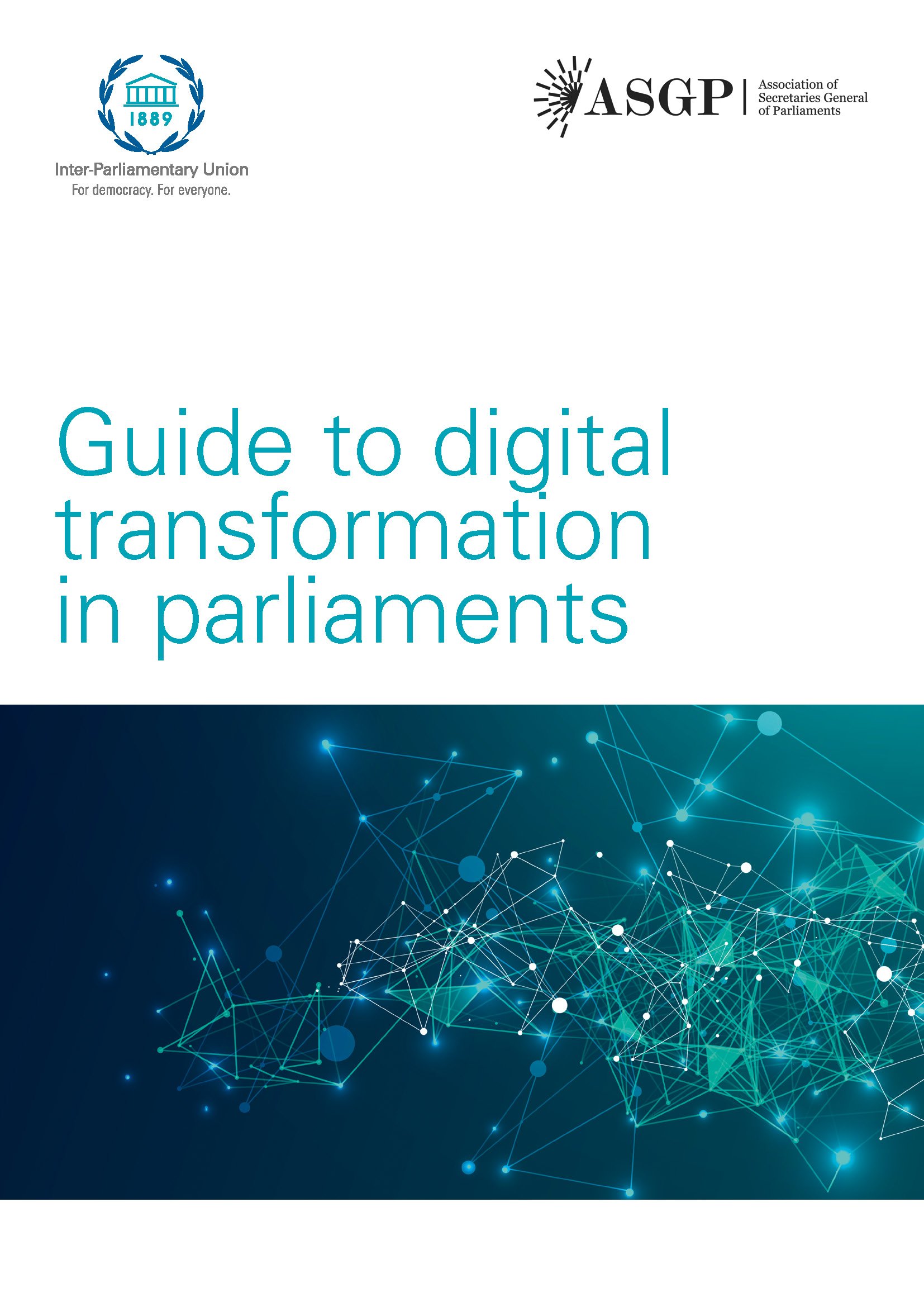IPU and ASGP Launch Guide to Help Parliaments Promote Digital Transformation
The Inter-Parliamentary Union (IPU) and the Association of Secretaries General of Parliaments (ASGP) released a new guide on the digital transformation of parliaments at the 147th IPU Assembly in Luanda, Angola.
The guide defines “digital transformation” as the “action of applying new digital-based tools and technologies to parliamentary processes and culture… as a part of the wider drive to modernize and improve parliaments, making them more efficient and effective. Digital transformation delivers optimized, more user-centric services to members, staff, and the wider public.”
According to a 2022 survey of ASGP members from 45 parliaments, 83% see digital tools as critical to the functioning of their parliaments. Of those responding, 73% have a multi-year strategic plan for the institution and 85% have made a formal commitment to advance digital transformation.
The guide warns that digital transformation is not the replacement of one computer system with another; rather, “it is a broad parliament-wide programme that understands the future business needs and re-maps the technical landscape to support those needs. It is a holistic programme that leverages digital technologies to change how an organization thinks, works, and behaves.”
The guide suggests five areas of focus for legislative digital transformation:
People: focusing on building competence rather than digital literacy
Process: mapping the way parliament works, defining business processes, and identifying areas for improvement
Architecture: developing a road map for how the underlying technology will support the new processes and culture
Applications: developing a technology stack that meets needs
Data: understanding what is held by parliament, how it is used and shared with other systems, with users and in open formats
For the short and medium term, the guide recommends that parliaments consider a range of technologies, such as cloud computing, data repositories, open data, AI, Internet of Things, virtual and augmented realities, blockchain, and social media. It also discusses the roles of legislators, Secretaries General, and Information and Communication Technology (ICT) departments, suggesting the use of the Agile approach to project management and delivery. Moreover, the guide provides information on how to implement and evaluate digital transformation programs.
Several case studies are highlighted such as the adoption of a Geo-Camera app by the Italian Chamber of Deputies in 2016 (which enables members to work on and off parliamentary premises), an e-chamber app by the Brazilian Chamber of Deputies and the National Assembly of Zambia during the Covid-19 pandemic (which connected members remotely to the floor or committee rooms through a videoconference platform), and tools to record and produce transcripts of plenary proceedings by the National Assembly of Malawi.
To read the IPU-ASGP Guide of Digital Transformation, click here.
About the IPU
The Inter-Parliamentary Union (IPU) is a global organization of national parliaments, with 180 Members and 14 Associate Members. It was founded in 1889 by France, the UK, Belgium, Denmark, Hungary, Liberia, Spain and the United States. The US Congress ceased participation in the the IPU in 2000 and its membership was formally suspended in 2003.
About the Association of Secretaries General of Parliaments (ASGP)
The Association of Secretaries General of Parliaments is a consultative body of the Inter-Parliamentary Union that works to facilitate contact between parliamentary secretaries general (in the US, this would be the Clerk of the House) in legislatures worldwide, notwithstanding membership in the IPU.
About the Comparative Legislative Strengthening Project
POPVOX Foundation’s Comparative Legislative Strengthening Project (CLSP) is working to share lessons from US legislative modernization efforts with international audiences and to highlight international lessons for US lawmakers and staff. Find out more at popvox.org/clsp.

